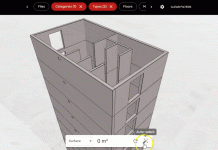The Access Group explores encouraging a culture of transparency, accountability and responsibility in the construction industry
As mentioned in some of our previous articles, construction is undergoing a huge cultural change.
For it to make the most of the opportunity to rebuild itself as the new and modern, and distance itself from the former preconception and scandal, there are three key areas that need addressing.
Transparency
Most of our customers agree that information is not easy enough to find quickly, and that is a huge part of the issue. Instantly available information is what creates transparency throughout a project.
There is also a need for transparency from suppliers of materials, whether that is substitutions or change of manufacturing process. Having an upfront conversation about the changes between original materials and substitutions needs to be had, as well as proof of safety certificates. Cases like Grenfell demonstrate the costs of not fully considering the impact of product substitution during a project until it is too late.
Accountability
If construction works for increased transparency across the board, accountability becomes easier to establish. The pieces fall into place when businesses have the tools to openly communicate with their teams, suppliers and business partners. By automating the audit trail, all information that could be needed can be found at the click of a button. Software means that construction can aim for a near future in which substitutions are flagged and easier to spot and scrutinise before they are installed.
Project costs and payments can be kept track of throughout a project lifecycle, and late payments within construction can start to be clamped down on. Although the sector is reluctant to invest in software that communicates with each other (quantity surveyors may use spreadsheets, estimators use estimating software, and finance use their own accounting software) it saves time, money and reputation in the long run.
Responsibility
Construction is an industry where the consequences can be incredibly serious if something goes wrong. It is not easy for someone to claim that responsibility if something does go wrong.
There is a disparity in the industry between those expected to take responsibility, and those who should. According to a study, earlier this year the Construction Product Association (CPA) found that 63% of respondents thought the fault should sit with the designer on a project. The nearest percentage after that was 55% for the manufacturer of the product. This should not be the case. Responsibility needs to become shared so that everyone works harder to create an environment with transparency and accountability throughout a project’s lifecycle.
Unfortunately, it is far too easy for substitutions and mistakes to go under the radar in many projects. There needs to be this increased pressure of responsibility to the individual, to the project, to the businesses involved, and to the wider public.
Where next?
This is the best way that construction can start to build a new reputation that prides itself on being honest, open and conscious. To find out where to start, we created a guide called ‘Transparency and Trust: Removing barriers and enabling closer collaboration within construction’ which you can download below.














